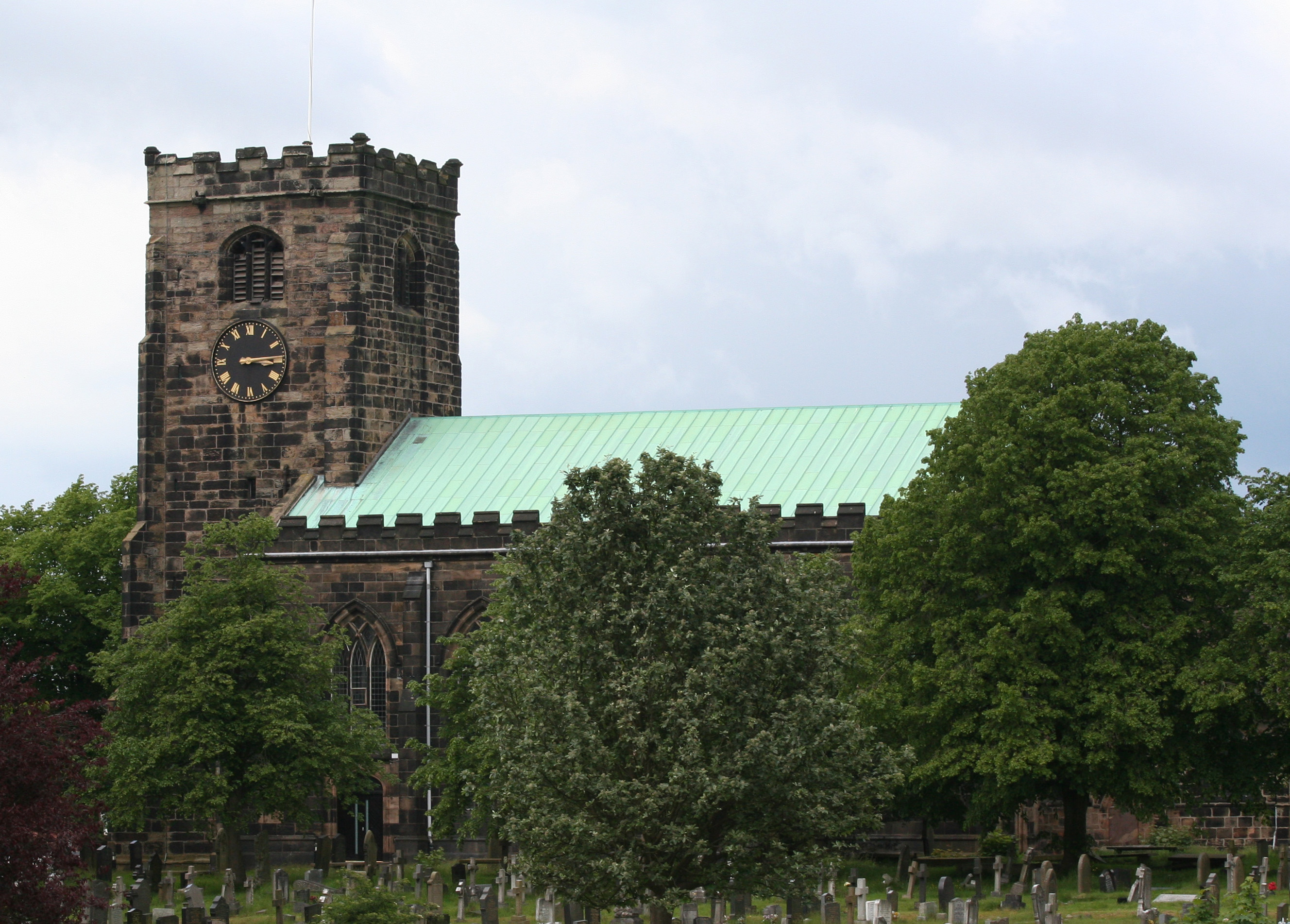|
Leyland, Lancashire
Leyland () is a town in South Ribble, Lancashire, England, six miles (10 km) south of Preston. The population was 35,578 at the 2011 Census. The name of the town is Anglo-Saxon, meaning "untilled land". History English Leyland was an area of fields, with Roman roads passing through, from ancient Wigan to Walton-le-Dale. It was left undisturbed for many centuries until rediscovered shortly after the Battle of Hastings (1066). Leyland is mentioned in the Domesday Book (1085). In 1066, King Edward the Confessor presided over the whole of Leyland. The manor was divided into three large ploughlands, which were controlled by local noblemen. In the 12th century, it came under the barony of Penwortham. The area of Worden, which is now Worden Park, was one of nine oxgangs of land granted to the Knights Hospitaller, by Roger de Lacy, in Lancashire, but the land was not assigned to any individual and a local man, who was a very close friend of de Lacy, Hugh Bussel, was assigned ... [...More Info...] [...Related Items...] OR: [Wikipedia] [Google] [Baidu] |
South Ribble
South Ribble is a borough in the county of Lancashire, England. Its council is based in Leyland. The population, at the 2011 Census, was 109,057. Notable towns and villages include Walton le Dale, Bamber Bridge, Leyland and Penwortham. It is wedged geographically between the towns of Blackburn, Lytham St Annes and Chorley and the city of Preston. Overview The district was formed on 1 April 1974 under the Local Government Act 1972, from Leyland and Walton-le-Dale urban districts, along with part of Preston Rural District. The Parliamentary Constituency of South Ribble includes the West Lancashire communities of Rufford, Tarleton, Hesketh Bank and Meols. Other notable population areas within South Ribble are Penwortham, Longton, Hutton, Walton-le-Dale, Bamber Bridge, Lostock Hall, Moss Side, and part of Buckshaw Village. Council In the 2007 local elections, South Ribble Conservative party won a landslide victory, gaining 24 seats to hold 44 of 55 on the borough co ... [...More Info...] [...Related Items...] OR: [Wikipedia] [Google] [Baidu] |
